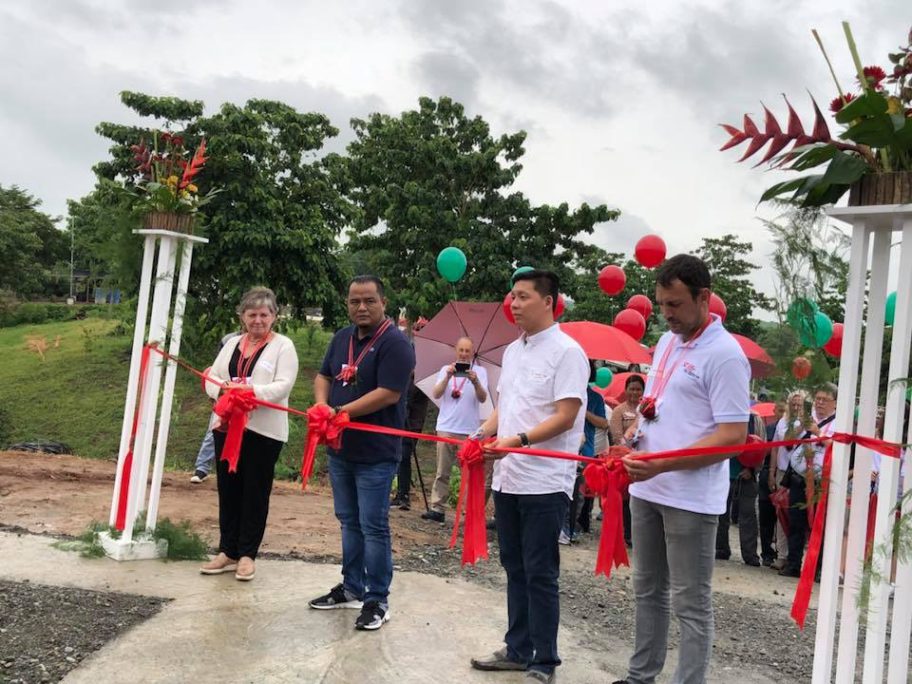Semen Cardona opens its new center in the Philippines to consolidate its expansion plan in Asia
Semen Cardona Filipinas celebrated the inauguration of its first artificial insemination centre, from where it will produce and elaborate its doses of porcine semen from the best imported genetics from Europe. The plant has started the activity of its first phase with the addition of a hundred young boars, and will begin production in fall. Before, in a month, the start of the second phase will culminate with a total of 200 animals, which will be fully productive before the end of 2018.
The inauguration included the participation of 150 people, among whom were the heads of Semen Cardona and its local partner, Plaridel, with whom they formed Semen Cardona Filipinas. Also attended by various Philippine authorities, such as the general director of the Porcine Industry. The Asian country is receiving exports from Semen Cardona for more than 10 years, and this investment will bring production closer, strengthen the commercial commitment and ensure greater immediacy in distribution. In addition, the import of boars from the best genetics developed in Europe will lead to a substantial improvement of the species in the Philippine livestock sector, at the same time that it will constitute an excellent strategic platform in its expansion plan in the Asian continent, one of the greater future in this business.
The AIC of Semen Cardona Filipinas is located in a remote agricultural and forestry area, in an environment isolated from the swine concentration in this insular country. This situation, meticulously studied by Semen Cardona Filipinas, further reinforces the guarantee of total biosecurity. The center has the most advanced technologies and the highest performance systems in terms of animal welbeing, which is the basis for achieving optimum levels of productivity, quality and prolificacy.
Semen Cardona is leading an ambitious expansion plan in Spain and internationally. At the same time of the construction of new centers in Aragón and Castilla y León, it has recently opened its second center in Mexico and projects new offices in other Latin American countries. Currently exports to more than 20 countries in Europe, Africa, Asia and America, and markets about 3 million doses per year.









